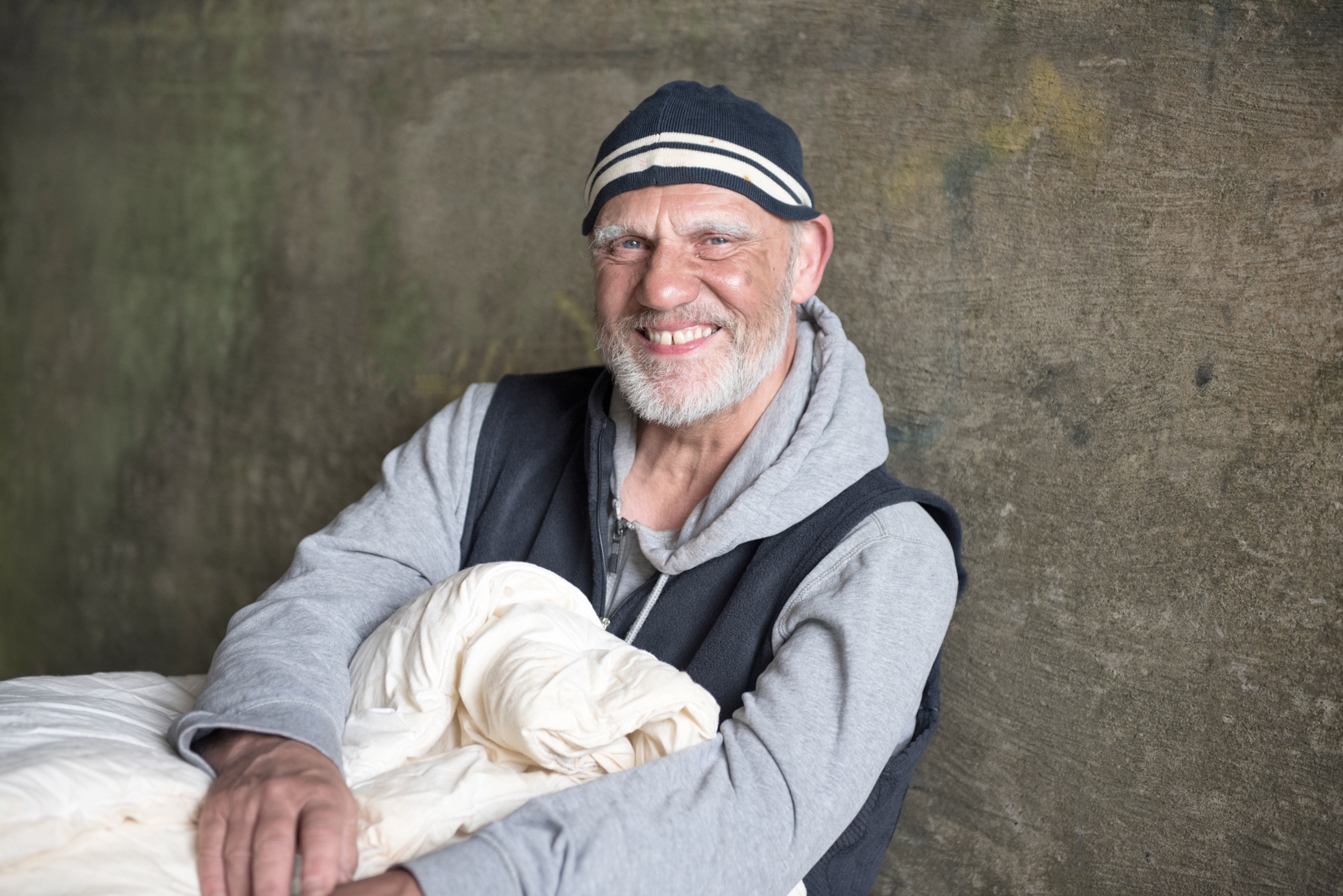Open to change: from Street to Home
Stability and support for our vulnerably housed.

The Street to Home (STH) After-Hours project, co-funded by Brisbane North PHN and Brisbane South PHN and supported by Micah Projects, provides integrated health, housing and social support to people experiencing homelessness or who are vulnerably housed in Brisbane’s north and inner city.
Moving people out of the cycle of homelessness and sleeping rough requires more than access to affordable and permanent housing – for a successful transition from street to home, many will also require intervention that integrates social supports and healthcare services.
Micah’s STH team, comprised of nurses and social workers, engage in assertive outreach in public spaces, which seeks to identify individuals who are vulnerably housed or sleeping rough, understand their unique circumstances and needs, and offer support in resolving crisis through access to housing and appropriate healthcare.
John*'s story
John* (55-years-old) is an Indigenous man under Micah's care as part of the STH program. John, who has type 2 diabetes, schizophrenia and a bilateral above knee double amputation, initially presented to Micah in 2020 for housing and health support before disengaging with the service.
In 2022, the building John was living in was destroyed by fire and his tenancy terminated – he was, thanks to the presence of the STH team, able to reconnect with Micah after he was found abandoned, lying on the roadside and sleeping rough under bridges. John’s vulnerable housing situation, coupled with various other risk factors (John is a drug user experiencing addiction, and requires a wheelchair for independent mobility) had led at this time to frequent hospital admissions and a decline in his overall physical and mental wellbeing.
Micah’s STH nursing and social services team developed an action plan to connect John with a multidisciplinary team to address his most immediate needs.
Referrals were made to alcohol and other drug services and a culturally appropriate GP to oversee John's care. John's prior GP was unsuccessful in making a NDIS application on his behalf, which STH social workers were able to help him remedy. The team also facilitated access in the community to Queensland Health, who secured provision of a wheelchair (via the Medical Aids Subsidy Scheme or MASS), and access to diabetes education and appropriate equipment, including a glucometer (via Queensland Health Diabetes Education).
While waiting for his NDIS package to be activated, John continues to be solely supported by Micah and recipient of a broad range of services to support his holistic health and wellbeing.
Consistent adherence to his diabetes regime is critical for ensuring good health outcomes for John – he is supported in its ongoing management through diabetes education with a Queensland Health diabetes educator, support accessing transport to his medical appointments and chemists, and regular provision of frozen and non-perishable food. John is now monitoring his blood glucose levels and taking his insulin medication regularly as a result of this wraparound care.
John’s vulnerability means he has been victim to theft of his personal items, including his phone, which limits his access to necessary supports and causes significant stress. John now has the support of a liaison to help book GP and hospital appointments and alleviate this concern.
With these prompts and supports in place, John’s outlook and health are vastly improved – with fewer hospitalisations, increased mobility and connection to his community, John now reports feeling open to change, reducing his substance use, and improving his relationship with his son which has fractured over time.
*Pseudonym used.
